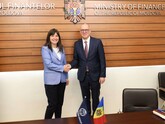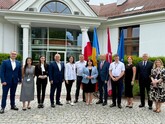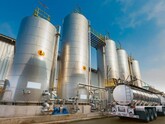
The government has approved a program for the phasing out of hydrofluorocarbons for 2025–2045
This strategic document aims to protect public health by reducing pollution and risks associated with hydrofluorocarbons (HFCs), chemical compounds widely used in air conditioning systems, refrigeration equipment, and aerosol production. These substances are extremely harmful to the climate because they trap heat in the atmosphere hundreds and thousands of times more intensely than carbon dioxide. Their emissions into the atmosphere therefore contribute significantly to global warming and the occurrence of extreme weather events such as prolonged droughts and other extreme weather phenomena. The program aims to reduce GHG consumption by 80% by 2045 by promoting alternative and environmentally friendly technologies in target areas. Separate action plans will be developed for each stage of the program, including specific measures, timelines, and progress indicators. For example, the first stage of the program, which is scheduled for 2025-2028, will cost approximately 8.2 million lei, of which almost 7.7 million lei will be covered by external partners. The measures will be aimed at adapting economic agents, consumers, and government agencies to international practices in the use of alternative substances and technologies (in the sectors of refrigeration, air conditioning, building insulation, firefighting, etc.) that contribute to a significant reduction in their impact on global warming. In particular, refrigeration and air conditioning equipment will be gradually re-equipped, old and energy-efficient equipment will be replaced with new equipment, etc. The money for this will come from external partners, donors, and international financial organizations, with the biggest chunk coming from the Multilateral Fund for the Montreal Protocol, which helps developing countries. Moldova is already receiving assistance from this Fund. For example, for 2016–2025, the Fund has approved $506.2 thousand for our country, which will be used to reduce HFCs consumption by 67.5%. Of this amount, Moldova has already received $245 thousand. A Memorandum of Cooperation between Moldova and the Fund for 2022–2030 was also signed earlier, providing for funding of $530.3 thousand. It is important to note that restrictions on the phase-out of refrigeration and air conditioning equipment using HFCs with high global warming potential will be implemented in stages. The import and release onto the market of equipment using such gases is permitted until 2030. Accordingly, economic agents will have sufficient time to prepare, train, certify, and install equipment using alternative refrigerants. The transition from synthetic refrigerants to natural refrigerants is expected to become the main direction of development for the refrigeration and air conditioning equipment market in the future. // 10.07.2025 – InfoMarket.







